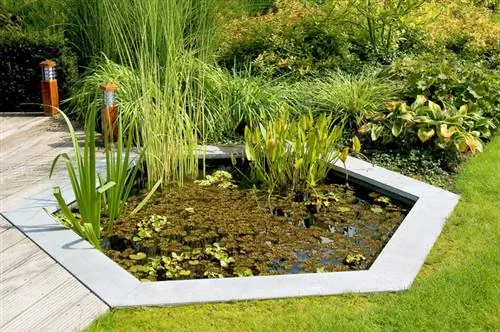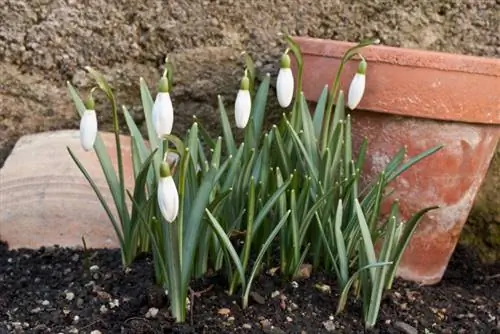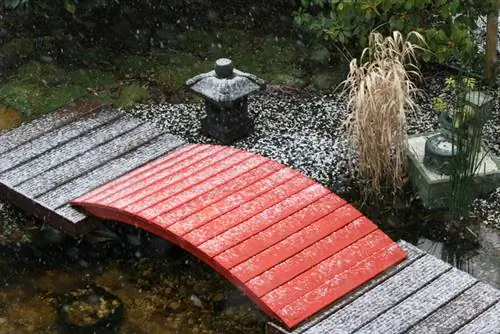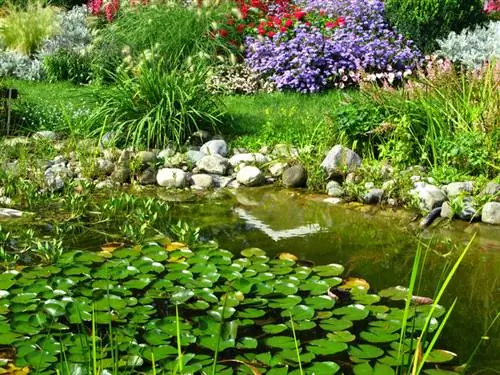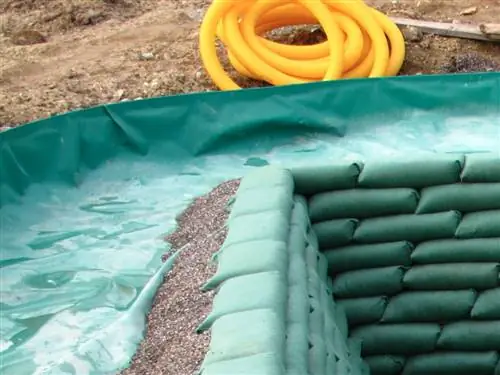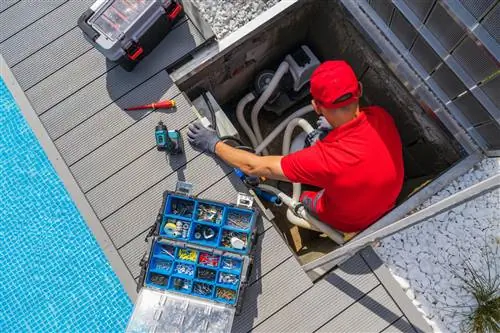- Author admin [email protected].
- Public 2023-12-16 16:46.
- Last modified 2025-06-01 06:02.
When it comes to garden ponds, the question always arises as to whether every pond actually has to have a pond filter. You can find out in our article whether this is actually necessary and what advantages a pond filter can have.
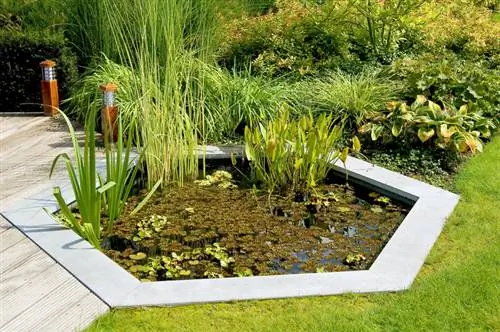
Do I have to install a pond filter?
A pond filter is not absolutely necessary for every garden pond, but can be unavoidable for fish ponds due to the additional pollution caused by feeding and fish stocking. In natural ponds without fish, pond filters are usually unnecessary because microorganisms ensure a natural balance.
Need for a pond filter
Pond filters ensure clear water. But this is not absolutely necessary for every garden pond. Normally, a pond regulates itself through the microorganisms it contains and thus prevents it from “tipping over” - that is, complete algae.
The plankton and small aquatic creatures ensure that the water remains clear and all organic matter is decomposed. A pond filter would also remove the plankton and aquatic life and would therefore do more harm than good to the water quality.
Areas of application of the pond filter
Pond filters remove all substances from the water that damage the water quality and make the water cloudy:
- dead and rotting plant parts
- Dirt
- leaves
- Algae
As already mentioned, you also remove useful microorganisms that perform the same task naturally. This is especially true for filters with UVC inserts.
In some cases it may be necessary to clean a pond more often. However, basic cleaning of the pond in autumn and spring should be sufficient in most cases.
Fishponds
Pond filters must be installed in many fish ponds. This is because the water is additionally polluted by the necessary additional feeding and fish stocking. For many smaller fish, however, the food supply due to the microorganisms present is usually sufficient and no additional feeding is required. This means that cleaning is not necessary.
These contaminations can no longer be removed by microorganisms alone. In order to keep a reasonably clean pond, pond filters are essential here.
The performance of the filter system must also be adapted to the degree of pollution and the pond (amount of fish, pond size, amount of food).
Other disadvantages of pond filters
For ponds without fish that are designed solely as natural ponds, in addition to the filter disrupting the natural water balance, there are also additional, avoidable disadvantages:
- Acquisition costs for the system
- Power consumption of the system
- Maintenance costs and maintenance effort for the system
Tip
Be sure to plan the pond size appropriately to the number of fish and the type of fish you want to use. In this case, the depth of the pond must also be greater: at least 1 m depth is a prerequisite for fish to be used.

